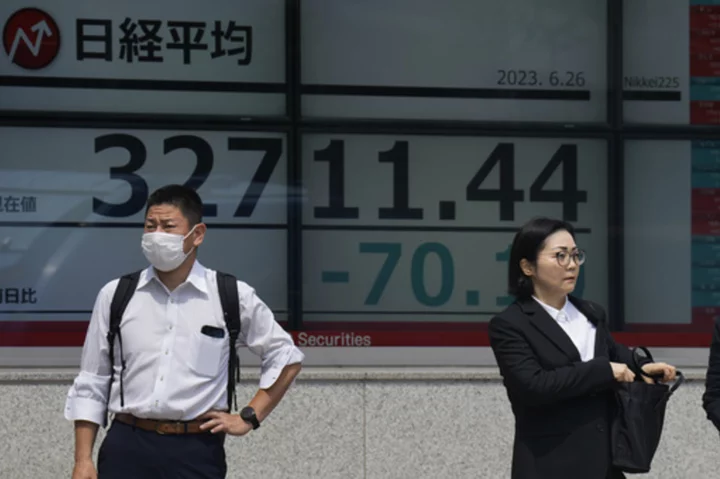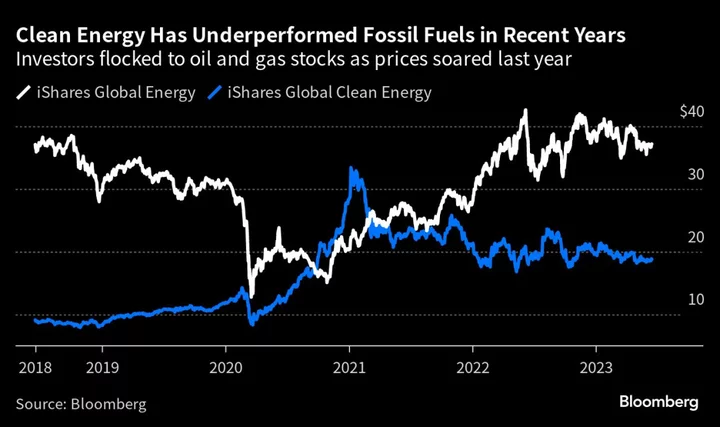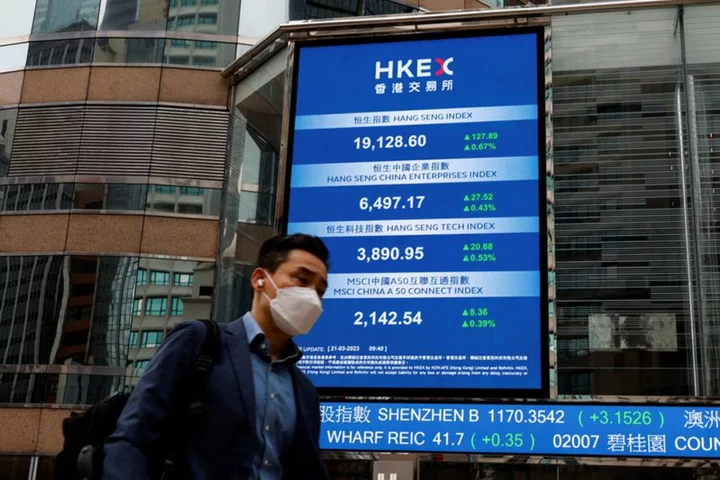TOKYO (AP) — Asian shares are mixed after a short-lived armed rebellion in Russia added to uncertainties over the war in Ukraine.
Benchmarks rose in Hong Kong, Tokyo and Seoul and fell in Shanghai and Sydney. U.S. futures rose and oil prices were little changed.
The rebellion by mercenary soldiers who briefly took over a Russian military headquarters on an ominous march toward Moscow was over. But the brief weakened President Vladimir Putin just as his forces were facing a fierce counteroffensive in Ukraine.
Yevgeny Prigozhin and his Wagner troops were some of Russia’s most effective fighters in Ukraine. Their aborted takeover of the capital also left their fate uncertain.
Japan's benchmark Nikkei 225 recouped early losses, gaining 0.2% to 32,846.24. South Korea's Kospi rose 0.5% to 2,581.83. Hong Kong's Hang Seng was up 0.1% to 18,898.51, while the Shanghai Composite, reopening after a holiday, dropped 0.7% to 3,173.37.
Australia’s S&P/ASX 200 lost 0.4% to 7,070.30
Wall Street marked its first losing week in the last six Friday. The S&P 500 fell 0.8% to 4,348.33, pulling back further from last week when it reached its highest level in more than a year. The Dow Jones Industrial Average dropped 0.6% to 33,727.43 and the Nasdaq composite sank 1% to 13,492.52.
“We have a slowing U.S. economy, a slowing global economy, all with on-going extreme inflation and high and going higher interest rate levels. There is no bullish stock market scenario here,” said Clifford Bennett, chief economist at ACY Securities.
High interest rates in the United States have already dragged manufacturing and other industries into contraction, while also helping to cause several failures in the banking system that rattled confidence. Federal Reserve Chair Jerome Powell said last week that even though his central bank didn’t raise rates last week, it could still push through a couple more hikes by the end of this year.
A preliminary report last week indicated the overall U.S. economy continues to grow, even though manufacturing is shrinking and its output fell to a five-month low.
In energy trading, benchmark U.S. crude gained 2 cents to $69.18 per barrel in electronic trading on the New York Mercantile Exchange. It fell 35 cents to $69.16 Friday. Brent crude, the international standard, added 33 cents to $74.18 a barrel.
In currency trading, the U.S. dollar fell to 143.40 Japanese yen from 143.58 yen. The euro cost $1.0909, inching up from $1.0903.
In the bond market, the yield on the 10-year Treasury fell Friday to 3.73% from 3.79% late Thursday.
___
Yuri Kageyama is on Twitter https://twitter.com/yurikageyama









